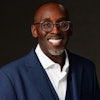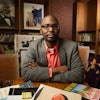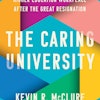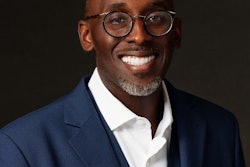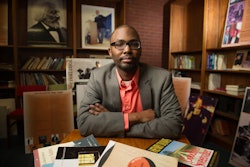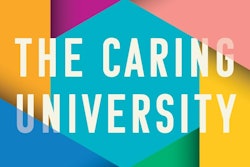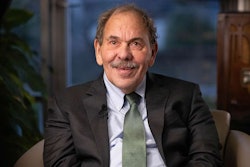Dr. Carole Boyce Davies’ lengthy title at Cornell University — Frank H.T. Rhodes Professor of Humane Letters in the College of Arts and Sciences and professor of Africana studies and literatures in English — denotes an impressive career in academia but doesn’t begin to describe the international recognition she has received and the breadth of her knowledge about the African Diaspora.
“I often tell people I live the Diaspora,” she remarks. “I was born in Trinidad & Tobago, studied in the United States, studied in Nigeria, had a Fulbright in Brazil, did research in the U.S., Brazil, Africa, India, China and the U.K., so I am truly international.”
One of Boyce Davies’ notable accomplishments is serving as editor of the three-volume Encyclopedia of the African Diaspora: Origins, Experiences, and Culture published in 2008. According 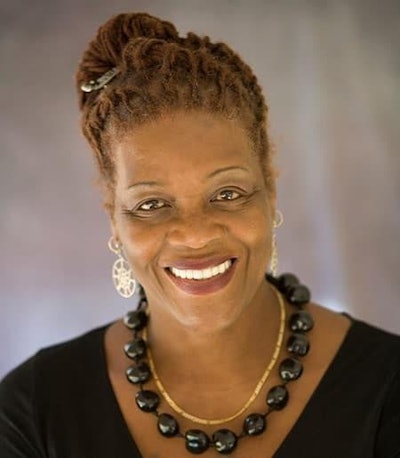 Dr. Carole Boyce Davies
Dr. Carole Boyce Davies
The tome along with dozens of other books and more than 100 chapters and journal articles she has written or edited have positioned Boyce Davies as one of the premier authorities on African Diaspora studies.
Boyce Davies sprinkles her conversation with references to Black literary icons such as Toni Morrison and Audre Lorde on the subject of scholar-activists, though she prefers the term “radical intellectuals.” Boyce Davies designed and taught a course on civil rights attorney Michelle Alexander’s groundbreaking 2010 bestseller The New Jim Crow and she touts Henry Louis Gates’ “Black in Latin America” research.
Amid the widespread campus unrest of the early 1970s, Boyce Davies credits Howard University, where she earned her master’s degree in African studies in 1974, with exposing her to a variety of Black historians and literary giants. They included Sterling Brown; C.L.R. James; John O. Killens; Léon Damas, who was her thesis advisor; Arthur P. Davis, who was one of her literature professors; and Howard’s pioneering Black librarian Dorothy Porter Wesley, who developed the world-renowned Moorland-Spingarn Research Center. “They were such brilliant activists and intellectuals — conscious, committed people. I was blessed to have been immersed in so much culture.” She sees a connection to her later research and scholarship.
“The mantra for many of us during my time as a Howard grad student was ‘study and struggle,’’’ she says. “The adult version of this is represented in the Black radical intellectual tradition which sees the Black struggle as global and one to which scholarship uncovers these histories, cultures and practices and shares that knowledge with campus and community.”
A native of Trinidad & Tobago and a graduate of the University of Maryland Eastern Shore, Boyce Davies was awarded a Commonwealth scholarship to pursue her doctorate at the University of Ibadan in Nigeria with an agreement to return to Trinidad & Tobago to teach for at least three years. After earning her Ph.D. and fulfilling her teaching commitment, she came back to the States, where she held tenured positions at SUNY-Binghamton and Florida International University before arriving at Cornell in 2007.
From Claudia Jones to Shirley Chisolm
One of her favorite topics is her research on Black feminist journalist and avowed Communist activist Claudia Jones. Boyce Davies calls Left of Karl Marx: The Political Life of Black Communist Claudia Jones “probably my most popular book.” Author Donald Hinds praised it as “a remarkably readable and informative study of a woman who was equally adept in her writing and public speaking on feminism, and as a social pioneer, a political analyst, and an avowed adversary of racism.” Boyce Davies followed it up three years later with Claudia Jones through Beyond Containment: Autobiographical Reflections, Essays, Poems.
Boyce Davies believes Jones, who was also a native Trinidadian and whose real last name was Cumberbatch, “is probably not as well-known as she should be because she was deported from the United States and ended up going to England.” In the U.K., Jones was acclaimed as the founder and editor of Britain’s first major Black newspaper, The West Indian Gazette, and for launching a huge annual event that became known as the Notting Hill Carnival.
Pointing out that Jones “raised the question of women, race and class,” Boyce Davies adds, “She was part of a group of Black people who were in the Communist party in the 1940s and 50s who were oppressed by the McCarthy era and the red scare. Some of them were incarcerated and she was among them.”
Continuing her focus, Boyce Davies’ current book project is an examination of Black women in political leadership in the African Diaspora. “It centers Shirley Chisolm and the way in which her leadership had an impact, not just in the United States but around the world,” Boyce Davies says, explaining that the book, slated for publication next year, will include international political figures such as Ellen Johnson Sirleaf, former president of Liberia and Nobel Peace Prize winner, and Portia Simpson-Miller, former prime minister of Jamaica.
“My position is that we should have a substantial number of women in office representing the population in their countries. We should not be happy just because we have one or a token number of women elected. We should have full representation.”
‘Maintain your integrity’
Boyce Davies notes that she was among the Cornell faculty who supported student protesters demanding reforms after the killing of George Floyd. Using the hashtag #DoBetterCornell, they met with university officials to discuss actions the university could take. “One of the things the students asked for is an anti-racism institute,” Boyce Davies recalls. “It passed the faculty senate and hopefully it will become a reality,”
In response to students’ concerns, in July 2020, Dr. Martha E. Pollack, Cornell’s president, announced several measures the university would initiate including “the creation of a for-credit requirement on racism, bias and equity for all Cornell students” and the creation of an Anti-Racism Center along with other actions to increase diversity, equity and inclusion.
Boyce Davies says she has been outspoken on social and political issues throughout her career without the backlash that some professors are experiencing today. “I guess I’ve been fortunate,” she jokes, quickly adding “but I have also done the work.” She believes strong scholarship is the key.
Her advice to young scholars and professors is based on that precept. “Maintain your integrity. Don’t feel that you have to compromise your political positions in order to make it up the ladder. In fact, I have found that the people who do that usually end up totally destroyed,” she asserts. “But you have to be strategic and you have to demonstrate that you have done intellectual work on a national level.”
This article originally appeared in the October 28, 2021 edition of Diverse. Read it here.

